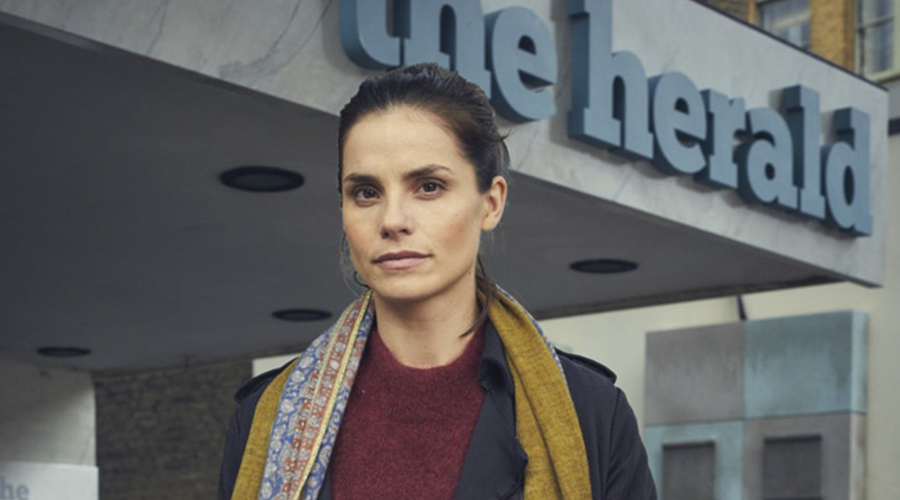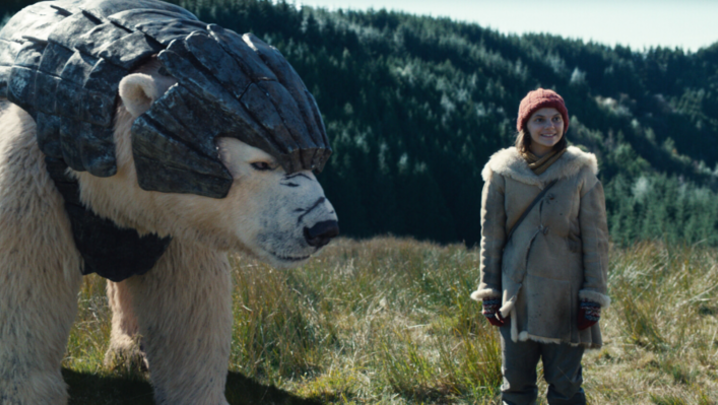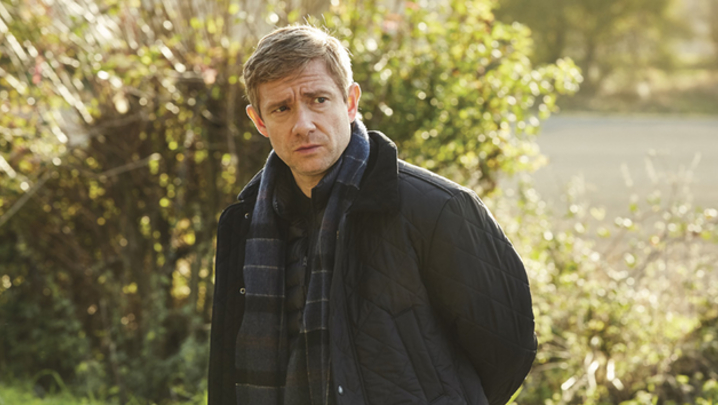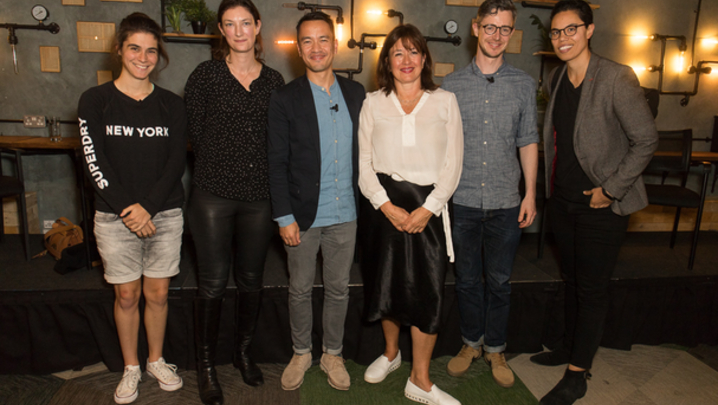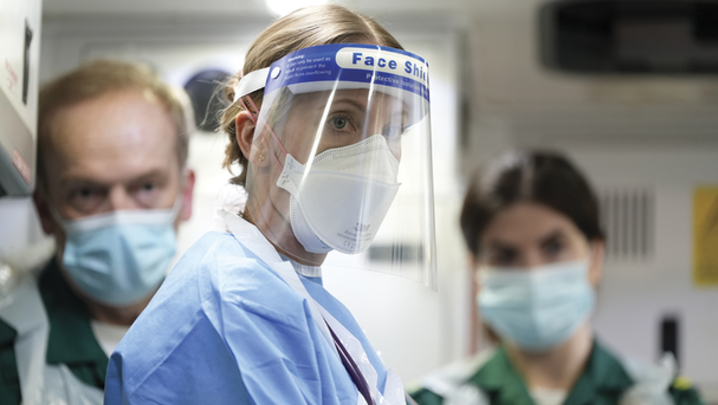Mark Lawson talks to TV and stage writer Mike Bartlett as his latest drama, Press, hits the screen
Theatre playwrights and TV screenwriters tend to be different animals who spend most of their time in one cage. Sir David Hare occasionally takes a break between National Theatre commissions to write a TV series, such as BBC Two’s recent Collateral, and Dennis Potter did a single theatre play, Sufficient Carbohydrate, but these were recognisably excursions from their main creative space.
One of the striking things about Mike Bartlett is that the 37-year-old writer moves smoothly and frequently between the ancient and modern entertainments. Over the past decade, two major plays at the National Theatre (Earthquakes in London and 13) and a couple at the Almeida (King Charles III and Albion) have alternated with four original series for TV: The Town, Doctor Foster, Trauma and, from the first week of September, Press, a six-part BBC One series about newspaper journalists in a time when their industry is struggling to find money and trust.
Confirming the success of Bartlett’s multiskilling, King Charles III, a mock-Shakespearean fantasy about the coronation of the current Prince of Wales, secured an Olivier award and a Tony nomination in its theatre version and an RTS nomination for its TV adaptation.
“The more I do, I come to realise how different TV and theatre are,” says Bartlett. “Far beyond the obvious things, such as the visual being more significant on screen. You don’t get rehearsals in television, really. So, if, from theatre, you’re used to finding and honing the script through five weeks in a rehearsal room, you really have to adjust.
“The other thing I really notice is the different rhythm of it. In TV, if you’re involved as an executive producer, a show can be a full-time job for two years. Whereas, in theatre, you have the moment of writing it and then the moment of it going on, but [you] do all this other stuff in between those two bursts of energy.”
The largest adjustment, though, is in the definition of a script. It would be normal for a theatre director and writer to discuss the style, tone or length of their next piece – but in TV these calculations are often preordained by slot or genre.
"If we base everything on opinion, civilisation would collapse quite quickly."
Rupert Goold, who directed King Charles III on both screen and stage, as well as several other Bartlett stage plays, thinks that the dramatist had to learn how to negotiate the expectations of commissioners and viewers. “I think he felt with The Town, which was not a ratings success, that – for various reasons – it hadn’t quite worked out as he hoped,” says Goold. “So he was wary of TV at that point.
“But he watches everything on TV and he learns how to make it work for him. I think he’s fallen in love with TV: with its reach and its ability to communicate.”
Goold suggests that Bartlett’s drive to get things right is central to his success in both forms. In the theatre rehearsal room, dramatists are king, whereas, on a TV production, they are more likely to have the rank of the Duke of Bognor.
There are stories of theatre writers being shocked by the number of hands on a TV script, but Goold says that would never be a problem for Bartlett: “He works and works and works, and hits deadlines. So many theatre writers, the first blast is everything – and it’s quite hard to get them to do the second, third, fourth, fifth drafts.
“But Mike doesn’t have any trouble with that.”
The theatre director also has a striking insight into the writer’s unusual attitude to form: “Mike used to be a drummer in a band and he has often said to me that he tends to think of writing in eight- to 12-line sections, rather than a single line, scene or act. He hears the music of a script.”
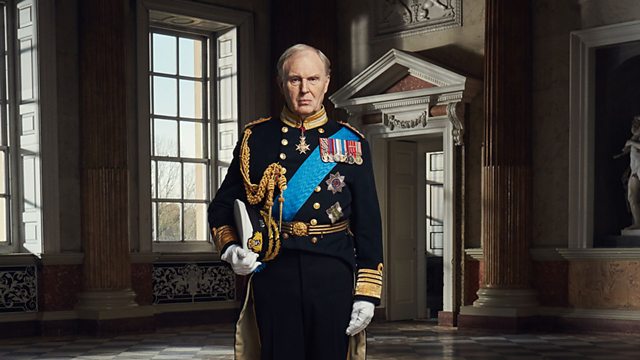
While Bartlett’s compositions for TV, so far, look very different superficially, one uniting factor is that, regardless of what direction the shows go in or the ideas they deal with, there tends to be a particular job at the heart of the action: medic (Doctor Foster, Trauma), heir to the throne (King Charles III) and, now, journalist (Press).
This list wins a thoughtful pause from Bartlett: “I’d never really thought about that. But I’ve always loved TV dramas where what characters do for a living is crucial to it. I’m thinking of The West Wing, The Good Wife and even Breaking Bad, where the point is that he moves from one occupation to another. Also, if you’re telling a long-form story, you pretty soon have to ask: well, what does this character do in the world?”
He remembers originally pitching Press, long before Doctor Foster, to various broadcasters, as “a ‘story of the week’ show, in which a gang of journalists would deal with a politics story one week, then a sports or showbiz one the next. It would be a bit West Wing-ish.
“But I was told that viewers weren’t interested in media stories. Then, with phone-hacking and the Leveson report, everyone got much more interested in journalism again. And, at the same time, the industry – post-digital – was going through, if not a collapse, then at least a revolution. And then the whole ‘fake news’ debate started.
“So, the show became more about those issues, although using the framework of a workplace drama in which you, hopefully, fall in love with the characters.”
Press moves between the Herald, a liberal newspaper with a high mind and a low circulation, and the Post, a tabloid where the equation is reversed. Ben Chaplin plays the editor of the Post and Charlotte Riley, a key performer for Bartlett – having been in The Town and played the Duchess of Cambridge in King Charles III – is the news editor of the Herald. (“Mike has always written particularly well for women,” says Goold.)
Both Riley and Chaplin’s characters, though, are given sympathetic and unsympathetic elements. And, while red-top tactics are dramatised – such as the “death knock”, seeking an interview with grievously bereaved parents – the upmarket publication is also indicted for hypocrisies, including, for example, putting salacious images online under the pretext of “debating the morality” of them.
“Yes. That was always important,” says Bartlett. “The series presents the two approaches to the news – in shorthand, broadsheet-serious and tabloid-populist – but, on any given day, one style may get closer to the truth than the other. And it’s really important to present those approaches without pre-existing prejudices. It’s on the BBC, written by a playwright who has previously shown leftist tendencies, but I don’t want to appeal only to people who read the Guardian. And I hope it doesn’t.”
Commendably, Bartlett even suggests that there may be messages in Press for the broadcaster that is screening it. He thinks that “a really good example” of the current media crisis of credibility “is the BBC thing with Cliff Richard. The BBC’s ability to stand up for the freedom of the press – which is an important cause – is hugely undermined by the fact that it flew a helicopter over his house.
“If you want to stand up for principle, you have to have principles in your daily work.
“But I’d also like the viewers to think about their own professions: when you go to work, how principled are you, and, if you’re not, what are the consequences for your industry?”
Rupert Goold confirms the writer’s careful open-mindedness: “I think his greatest gift is that he writes with enormous compassion towards all sides. He’s a very political man, and a moralist. But, in King Charles III, he wanted to present the monarchist voice, and, in our stage play Albion, the Brexiteer voice, even though those aren’t his own positions.”
So, with Press, did Bartlett study previous fictions about journalists, such as the movie The Front Page or David Hare and Howard Brenton’s stage play Pravda?
“No,” he says. “But I think the form that Press plays with is the TV workplace drama: The West Wing, Ally McBeal, The Good Wife. It plays with that, but also subverts it. It looks like a ‘story of the week’ show, but I want viewers to be uncertain which of the stories will complete that week or play out over the whole series. Which reflects what it’s like working on a newspaper but also gives a different form to the show.”
One of my grandfathers was a County Durham coal miner, and I mention to Bartlett that Press made me reflect on the irony that his grandson had ended up in a profession, journalism, that now feels terminally threatened, as coal mining was in the 1980s.
“Yes,” he responds. “But what I’d say – and Press explores – is that we could do without coal, but we can’t do without energy. To take that analogy to journalism, we might – might – be able to manage without newspapers, but we can’t manage without news or facts. If we base everything on opinion, civilisation would collapse quite quickly. We have to find a way of verifying objective truth.”
Rupert Goold expects much more TV work from Bartlett: “I tease him that, when we did King Charles III on stage, he wrote it and left the production up to me. But, when we did it on screen, every single costume he had a view on. So, I think he does have that American-style ‘showrunner’ in him. He likes to be over it all.”
Bartlett seems to confirm that view: “In Press, in the Post’s office, in the corner, there’s a cartoonist and they designed an office decorated with cartoons from across his whole career. And I was devastated that I hadn’t written any of that into the show. I could have done a whole episode about the cartoonist!”
Press has the potential to run to more series, but that will depend on ratings and, appropriately, press. BBC One and its viewers might also like a third series of Doctor Foster, with Suranne Jones as the media-friendly GP.
But Bartlett says: “There’s nothing happening at the moment. Suranne is super-busy. And I’ve got other things coming up.
“I think, in all our minds, there’s no hurry: there has to be the right time and the right storyline.
“The second series took two years. We’ve never wanted to make it for the sake of making it. So we’ll have to wait and see.”

